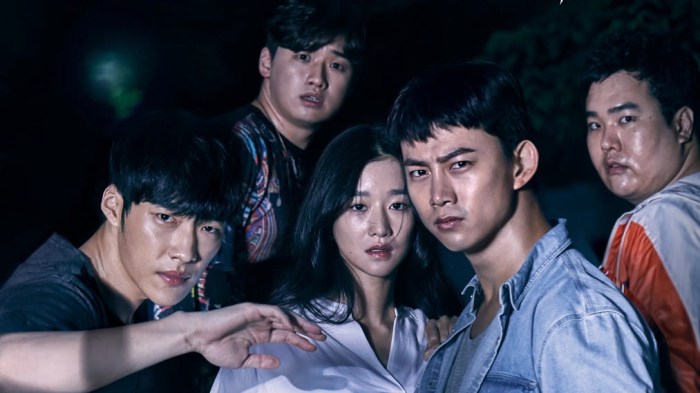Reality TV Saved Me: It sounds dramatic, right? But for many, the deeply personal narratives unfolding on our screens offer more than just escapism. These shows, with their raw portrayals of struggle and transformation, tap into a powerful emotional wellspring within viewers, sparking hope and fostering a sense of connection in a world that often feels isolating. We’ll explore the complex relationship between reality TV, personal growth, and the surprising therapeutic potential hidden within the glitz and glamour.
From the manufactured drama of competition shows to the intimate confessions of relationship-focused series, reality TV’s ability to resonate with audiences lies in its exploration of universal human experiences. We’ll dissect the ethical considerations surrounding the portrayal of vulnerability for entertainment, examining the fine line between authentic storytelling and exploitative sensationalism. Ultimately, we’ll ask: Is there genuine therapeutic value to be found in watching others overcome adversity, or is it simply a form of vicarious living?
The Appeal of “Reality TV Saved Me”

Source: mzstatic.com
Reality TV, often dismissed as frivolous entertainment, unexpectedly offers a powerful and deeply resonant narrative: the transformative journey. Viewers connect with these shows not just for the drama, but for the potential for personal growth and redemption they represent, mirroring our own aspirations for self-improvement and overcoming adversity. The emotional investment stems from witnessing vulnerability, struggle, and ultimately, triumph, fostering a sense of shared experience and hope.
The aspirational element in these shows is undeniable. They offer a glimpse into a possible future, a version of ourselves where challenges are conquered and dreams are realized. These narratives, while often edited for dramatic effect, tap into our innate desire for positive change and inspire us to pursue our own personal transformations, however small. The “rags-to-riches” storyline, though sometimes exaggerated, resonates deeply because it speaks to the human desire for betterment and a better life.
Transformative Narratives in Reality TV, Reality tv saved me
Many reality shows leverage the power of personal transformation to engage viewers. Shows like “The Biggest Loser,” focusing on weight loss, showcase the physical and emotional challenges individuals overcome. The participants’ dedication, setbacks, and ultimate successes resonate with viewers striving for their own health and wellness goals. Similarly, “Intervention” portrays the harrowing realities of addiction and the arduous path to recovery, offering both a cautionary tale and a message of hope. The emotional journeys of the participants, their families, and the interventionists create a powerful narrative of struggle and redemption. Other shows like “Queer Eye” demonstrate transformation through self-acceptance and embracing personal style, impacting viewers by promoting self-love and confidence. These examples highlight the diverse ways in which reality TV can depict and inspire personal growth.
| Genre | Show Example | Transformation Type | Viewer Impact |
|---|---|---|---|
| Weight Loss | The Biggest Loser | Physical and Mental Health Improvement | Inspires healthy lifestyle changes, promotes self-acceptance |
| Addiction Recovery | Intervention | Overcoming Substance Abuse | Raises awareness, offers hope for recovery, encourages seeking help |
| Self-Improvement | Queer Eye | Increased Self-Esteem and Confidence | Promotes self-love, encourages embracing individuality |
| Home Renovation | Fixer Upper | Improved Living Conditions and Family Dynamics | Inspires home improvement projects, highlights the impact of a positive home environment |
Authenticity and Representation

Source: thedailybeast.com
Yeah, so “reality TV saved me” sounds crazy, right? But the drama? The sheer, chaotic energy? It was a distraction from the soul-crushing monotony of my old job. Then I discovered the power of collective action, reading about the crucial work being done in remote work labor organizing , which totally shifted my perspective.
Now, I’m channeling that reality TV drama into fighting for better work conditions – because, let’s be real, my life’s way more interesting than any scripted show.
Reality TV, particularly shows focusing on personal struggles, walks a precarious tightrope. The inherent drive for compelling narratives often clashes with the ethical responsibility of portraying genuine human experiences. The question of authenticity becomes paramount, demanding careful consideration of the potential for exploitation and the crucial need for responsible representation.
The ethical considerations involved in showcasing personal struggles for entertainment are complex. While these shows can offer valuable insights into human experience and foster empathy, there’s a significant risk of trivializing or sensationalizing serious issues. Participants may feel pressured to exaggerate or fabricate details to enhance their screen time, leading to a distorted portrayal of reality. Moreover, the editing process itself can heavily influence the narrative, shaping perceptions and potentially misrepresenting individuals and their situations. The line between genuine emotional impact and manufactured drama is often blurred, raising concerns about the long-term psychological effects on participants.
Potential for Exploitation and Manipulation
The power dynamic between producers and participants creates fertile ground for exploitation. Producers, driven by ratings and compelling storylines, may incentivize participants to engage in behaviors or reveal information they might otherwise keep private. This can lead to emotional distress, reputational damage, and even legal ramifications for those involved. Furthermore, the editing process can selectively highlight certain aspects of a participant’s story while omitting others, creating a skewed and potentially harmful narrative. The pressure to conform to pre-conceived notions of what constitutes “good TV” can significantly impact the authenticity of the portrayal. For example, a show focused on addiction might prioritize dramatic confrontations over nuanced portrayals of recovery, potentially reinforcing harmful stereotypes.
Examples of Responsible Portrayal
Not all reality TV fails in this regard. Some shows manage to navigate the complexities of authenticity and entertainment responsibly. For instance, certain documentaries that focus on specific social issues, such as homelessness or mental health, often prioritize ethical considerations. These shows typically feature extensive interviews, background research, and sensitive handling of participant stories. They may also include expert commentary to provide context and avoid misrepresentation. The key is a commitment to accuracy, respect for participants, and a clear understanding of the ethical implications involved in presenting vulnerable individuals’ stories.
Visual Representation of the Tension
Imagine a seesaw. On one side sits a brightly lit television studio, filled with cameras, crew members, and elaborate sets, representing the demands of entertainment. On the other side, a solitary figure sits in a dimly lit room, their face etched with raw emotion, representing genuine emotional impact. The seesaw is perpetually unbalanced, tilting dramatically towards the entertainment side, yet the weight of the solitary figure constantly threatens to tip the scales the other way. The tension is palpable, visually representing the constant struggle between the need for captivating television and the ethical responsibility of portraying human experience with sensitivity and respect. The vibrant, almost garish colors of the television studio starkly contrast with the muted tones of the individual’s space, highlighting the inherent disparity between the manufactured world of reality TV and the genuine emotional landscape of real life.
The Role of Editing and Narrative Construction: Reality Tv Saved Me
Reality TV, especially shows focusing on personal transformation like “Reality TV Saved Me,” relies heavily on editing to craft compelling narratives. The raw footage of someone’s journey through recovery is rarely as neat and tidy as the final product. Editing choices, therefore, are crucial in shaping viewer perception of the individual’s progress, challenges, and ultimate success (or perceived failure). This manipulation of reality, while often criticized, is integral to the genre’s appeal and effectiveness in conveying complex emotional journeys.
The editing process actively constructs a narrative arc, often following a classic three-act structure: a troubled beginning, a series of escalating conflicts and breakthroughs, and a triumphant resolution. This structure, while familiar, allows viewers to invest emotionally in the participant’s journey and to experience a sense of catharsis alongside them. However, this carefully curated narrative can potentially gloss over the complexities of recovery, creating a potentially unrealistic and even misleading portrayal of the process.
Editing Techniques and Their Impact
The power of editing in shaping audience perception is undeniable. Producers utilize a variety of techniques to heighten emotional impact and create a sense of dramatic tension. These techniques are not merely stylistic choices; they actively contribute to the narrative’s overall message and impact.
- Selective Sequencing: Choosing specific moments to emphasize certain aspects of the journey, while omitting others, can significantly alter the overall narrative. For example, showcasing only moments of triumph might paint an overly optimistic picture of recovery, ignoring setbacks and struggles.
- Music and Sound Effects: The strategic use of music and sound effects can powerfully manipulate emotional responses. A soaring orchestral score during a moment of vulnerability can amplify the emotional weight, while discordant sounds might underscore feelings of anxiety or despair.
- Close-Ups and Slow Motion: Close-ups on faces during emotional moments create intimacy and allow viewers to connect with the participant’s feelings. Slow motion can amplify the intensity of a particular event, emphasizing its significance in the narrative.
- Jump Cuts and Montage Sequences: Jump cuts can create a sense of urgency or rapid change, while montages can compress long periods of time, highlighting progress or illustrating the passage of time.
- Confessional Interviews: These provide direct access to the participant’s thoughts and feelings, allowing viewers to connect with their internal struggles and triumphs. However, the editing of these interviews can also influence the message, highlighting certain aspects while downplaying others.
Comparison with Other Media Representations
Reality TV’s portrayal of recovery differs significantly from other media representations. While films and documentaries might offer a more nuanced and comprehensive exploration of the process, often encompassing setbacks and relapses, reality TV tends to focus on the transformative arc, emphasizing the positive outcome. This emphasis on a “happily ever after” can be both inspiring and potentially misleading, setting unrealistic expectations for viewers struggling with similar issues. For example, a movie about addiction might realistically portray multiple relapses and the long road to recovery, while a reality show might focus on the triumphant moment of sobriety without fully addressing the ongoing challenges.
Impact and Influence on Viewers
Reality TV shows centered on personal transformation, like “Reality TV Saved Me,” wield considerable influence over their viewers, impacting their self-perception, aspirations, and even their behaviors. The potential effects are multifaceted, ranging from inspiring positive change to fostering unrealistic expectations and unhealthy comparisons. Understanding these impacts is crucial to navigating the complex relationship between viewers and these often emotionally charged narratives.
The narratives presented in these shows often resonate deeply with viewers because they tap into universal human experiences: struggles with self-esteem, relationship challenges, and the desire for personal growth. Viewers may identify with the participants’ initial struggles, finding solace in the shared experience of vulnerability. The subsequent journeys of transformation, while often heavily edited, can provide a sense of hope and possibility, inspiring viewers to embark on their own journeys of self-improvement. However, the potential for negative influence is equally significant, and requires careful consideration.
Viewer Emotional Responses and Discussions
Online forums and social media platforms dedicated to reality TV shows often become spaces for viewers to share their emotional responses and discuss the narratives. For example, in discussions surrounding weight-loss reality shows, viewers frequently express feelings of inspiration, motivation, and even guilt or shame, depending on their own personal relationship with their body image. Some viewers might feel empowered by the participants’ successes, while others may feel discouraged by their own perceived failures in comparison. The emotional impact is often amplified by the highly edited nature of the shows, which can present a simplified and idealized version of personal transformation. Discussions surrounding shows like “Queer Eye” often highlight viewers’ emotional connection to the participants’ stories and the positive impact of self-acceptance and community support. The emotional resonance extends beyond individual experiences, touching on broader societal issues of identity, acceptance, and belonging.
Hypothetical Scenario: The Influence of Narrative on Self-Perception
Imagine Sarah, a young woman struggling with body image issues. She watches “Reality TV Saved Me,” and is particularly drawn to a participant’s journey of overcoming similar insecurities. The show depicts the participant’s struggle, their setbacks, and ultimately, their triumphant transformation. This narrative resonates deeply with Sarah, who starts to believe that similar change is possible for her. However, the show’s heavily edited nature obscures the participant’s likely struggles with maintaining their transformation. Sarah, influenced by the idealized narrative, may set unrealistic expectations for herself, leading to disappointment and even increased self-criticism if she doesn’t achieve the same rapid results. This hypothetical scenario illustrates how a reality TV narrative, while potentially inspiring, can also inadvertently contribute to negative self-perception if viewers fail to critically analyze the presented information and the inherent limitations of reality television editing.
Beyond Entertainment

Source: iqiyipic.com
Reality TV, often dismissed as mindless fluff, holds a surprising potential for therapeutic benefit. While primarily designed for entertainment, shows focusing on personal growth and resilience can offer viewers a unique form of emotional support and inspiration, albeit indirectly. The key lies in understanding the nuances of how these narratives function and recognizing the limitations of equating entertainment with genuine therapeutic intervention.
The potential therapeutic value of reality TV stems from its ability to showcase relatable struggles and triumphs. Viewers can find solace and hope in witnessing others navigate challenges similar to their own, fostering a sense of community and shared experience. The vicarious experience of witnessing someone overcome adversity can be incredibly empowering, offering a blueprint for personal growth and resilience. This is particularly true for shows that explicitly focus on self-improvement, recovery, or overcoming significant life obstacles.
Reality TV’s Therapeutic Potential: Inspiration and Emotional Support
Reality TV’s ability to provide emotional support and inspiration is largely dependent on the narrative construction. Shows that prioritize genuine emotional vulnerability and authentic portrayals of personal struggles can resonate deeply with viewers. For example, a show documenting someone’s journey through addiction recovery could offer hope and encouragement to individuals facing similar challenges. Witnessing the participant’s setbacks and eventual triumphs can be incredibly validating and inspiring, fostering a sense of possibility and self-belief. Conversely, shows that sensationalize conflict or exploit personal struggles for entertainment value are unlikely to offer any significant therapeutic benefit, and may even be detrimental to viewers’ mental well-being.
Promoting Self-Reflection and Positive Change Through Narrative
Effectively constructed reality TV narratives can serve as a powerful tool for self-reflection and positive change. By witnessing the consequences of certain choices and the positive outcomes of others, viewers can gain valuable insights into their own lives. A show focusing on financial literacy, for example, could inspire viewers to re-evaluate their own spending habits and develop better financial planning strategies. Similarly, a show depicting healthy relationship dynamics could encourage viewers to examine their own relationships and work towards improving communication and conflict resolution skills. The key is to present these narratives in a way that is both engaging and thought-provoking, encouraging viewers to actively consider the implications for their own lives.
Vicarious Experience vs. Genuine Therapeutic Intervention
It’s crucial to distinguish between the vicarious experience offered by reality TV and genuine therapeutic intervention. While watching a show about overcoming anxiety might be inspiring, it’s not a replacement for professional help. Reality TV can provide emotional support and inspiration, but it cannot offer the personalized guidance and support of a therapist or counselor. The vicarious experience can be a helpful supplement to professional treatment, offering a sense of community and hope, but it should not be considered a substitute for evidence-based therapeutic interventions. For instance, while watching a show about weight loss might motivate someone to start exercising, it won’t address underlying psychological issues that might be contributing to their weight problems. Professional help would be necessary to address those underlying issues.
Final Review
So, does reality TV truly “save” anyone? While it’s unlikely to replace professional therapy, the emotional resonance and aspirational narratives presented in these shows offer a unique form of connection and potential inspiration. The carefully crafted narratives, though often edited for dramatic effect, can still offer viewers a sense of hope, resilience, and the understanding that they’re not alone in their struggles. Ultimately, the impact of reality TV on viewers is complex and deeply personal, demanding a nuanced understanding of its power and limitations.


